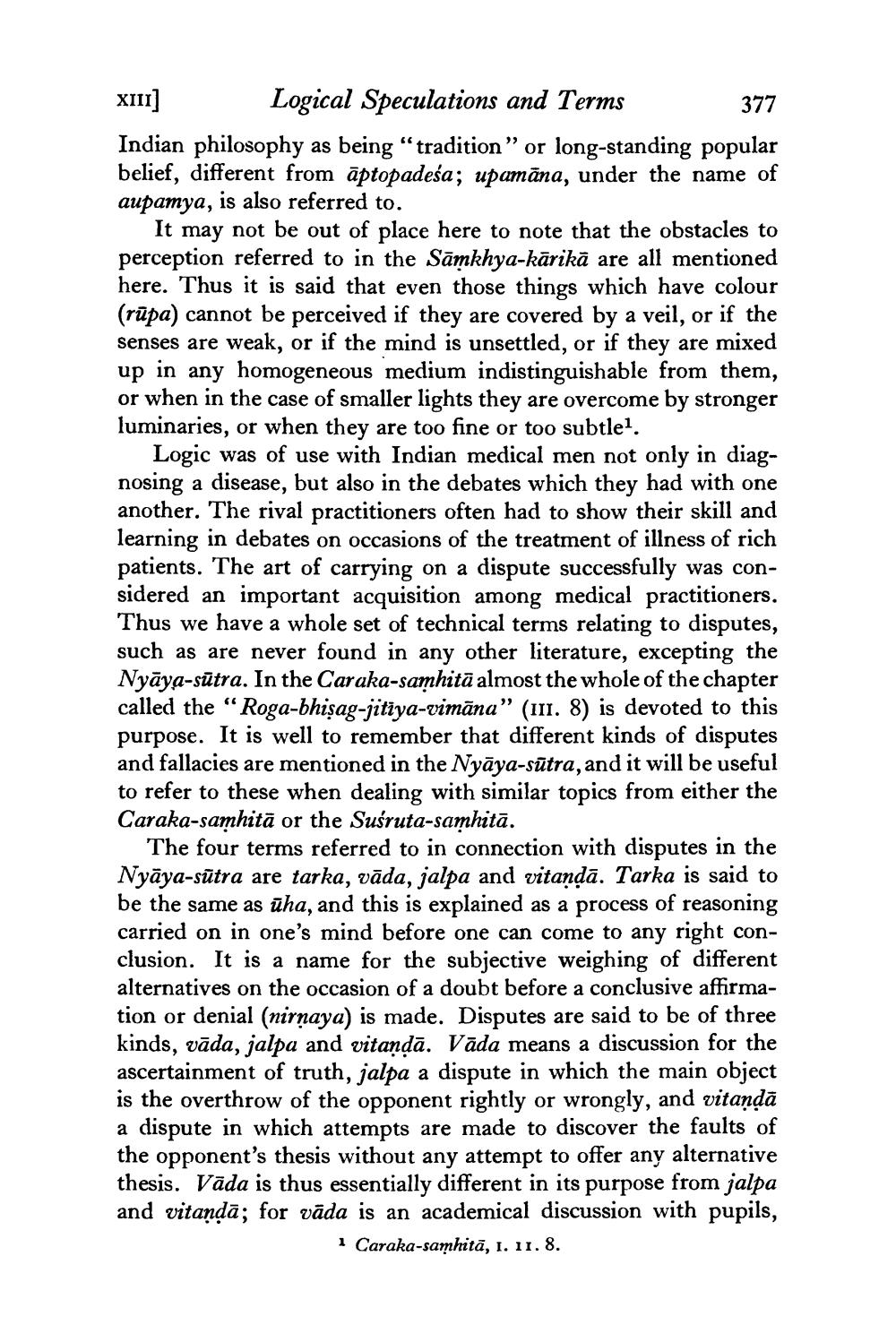________________
X111] Logical Speculations and Terms 377 Indian philosophy as being "tradition” or long-standing popular belief, different from āptopadeśa; upamāna, under the name of aupamya, is also referred to.
It may not be out of place here to note that the obstacles to perception referred to in the Sāmkhya-kārikā are all mentioned here. Thus it is said that even those things which have colour (rūpa) cannot be perceived if they are covered by a veil, or if the senses are weak, or if the mind is unsettled, or if they are mixed up in any homogeneous medium indistinguishable from them, or when in the case of smaller lights they are overcome by stronger luminaries, or when they are too fine or too subtle?
Logic was of use with Indian medical men not only in diagnosing a disease, but also in the debates which they had with one another. The rival practitioners often had to show their skill and learning in debates on occasions of the treatment of illness of rich patients. The art of carrying on a dispute successfully was considered an important acquisition among medical practitioners. Thus we have a whole set of technical terms relating to disputes, such as are never found in any other literature, excepting the Nyāya-sūtra. In the Caraka-samhitā almost the whole of the chapter called the "Roga-bhişag-jätīya-vimāna” (i11. 8) is devoted to this purpose. It is well to remember that different kinds of disputes and fallacies are mentioned in the Nyāya-sūtra, and it will be useful to refer to these when dealing with similar topics from either the Caraka-samhitā or the Suśruta-samhitā.
The four terms referred to in connection with disputes in the Nyāya-sūtra are tarka, vāda, jalpa and vitandā. Tarka is said to be the same as ūha, and this is explained as a process of reasoning carried on in one's mind before one can come to any right conclusion. It is a name for the subjective weighing of different alternatives on the occasion of a doubt before a conclusive affirmation or denial (nirnaya) is made. Disputes are said to be of three kinds, vāda, jalpa and vitandā. Vāda means a discussion for the ascertainment of truth, jalpa a dispute in which the main object is the overthrow of the opponent rightly or wrongly, and vitanda a dispute in which attempts are made to discover the faults of the opponent's thesis without any attempt to offer any alternative thesis. Vāda is thus essentially different in its purpose from jalpa and vitandā; for vāda is an academical discussion with pupils,
i Caraka-samhitā, 1. 11.8.




